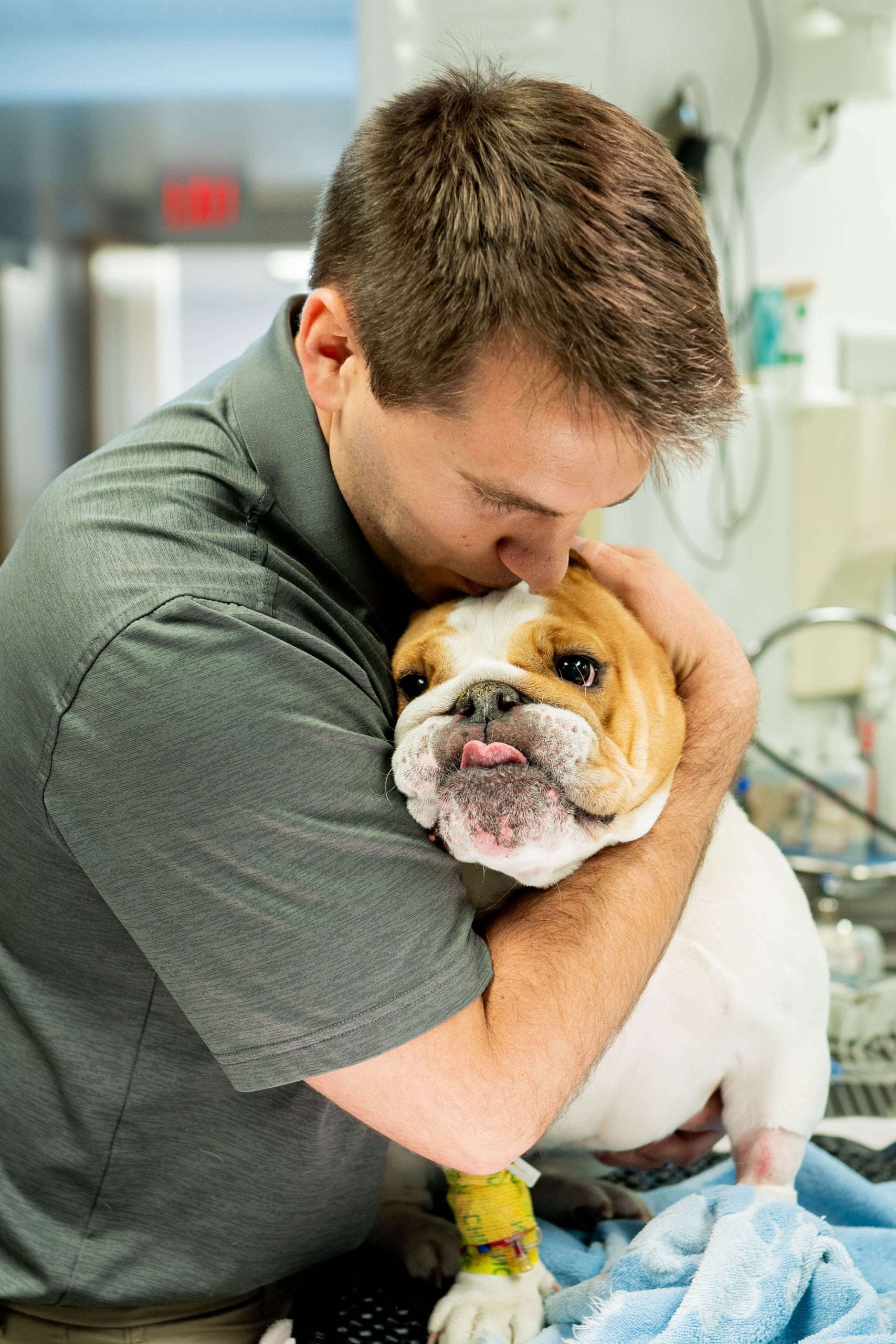The temperature outside is dropping, camping trips are being planned, bonfires held, and we’re all dreaming of snow. However, with cold weather comes a whole new set of things to watch out for when it comes to your pet.
planned, bonfires held, and we’re all dreaming of snow. However, with cold weather comes a whole new set of things to watch out for when it comes to your pet.
Wellness Visit
Once the weather gets colder, it is a good idea to have your pet checked over by your veterinarian. Ask your vet if there are any ways the cold weather can worsen any of your pet’s existing conditions. Many things can be exacerbated by cold weather, including skin aliments and arthritis. Let your veterinarian know if you are noticing a decline in your pet’s health or a change in behavior as the temperature drops.
Cold Tolerance
Keep your dog’s comfort in mind when you take them outside into the cold. While every dog’s cold tolerance is different, it is important to remember that if you are cold, your pet most
Poisons
Many enviro nmental factors put your pet at risk in the wintertime. The cold weather calls for chemicals to be present outside that normally are not, such as antifreeze or road salt. Keep a close eye on your pet to ensure that they do not have access to these poisons, and keep baby wipes on hand to clean their feet with if they happen to track through some. Avoid antifreeze by all means, as it will put your pet into acute kidney failure, and ingestion will be fatal. It can be sweet tasting and tempting for curious pets. Consider dressing them in boots or booties for their walks. While it sounds like overkill, it is much easier to clean off the sole of a dog boot after tracking through salt or antifreeze than rushing your pet to the emergency center.
nmental factors put your pet at risk in the wintertime. The cold weather calls for chemicals to be present outside that normally are not, such as antifreeze or road salt. Keep a close eye on your pet to ensure that they do not have access to these poisons, and keep baby wipes on hand to clean their feet with if they happen to track through some. Avoid antifreeze by all means, as it will put your pet into acute kidney failure, and ingestion will be fatal. It can be sweet tasting and tempting for curious pets. Consider dressing them in boots or booties for their walks. While it sounds like overkill, it is much easier to clean off the sole of a dog boot after tracking through salt or antifreeze than rushing your pet to the emergency center.
Storms
Winter storms, rain or snow, can be extremely stressful on your pet. These common occurrences can cause minor to  severe anxiety. There are many ways to help your pet relax during a storm, including playing soothing music, confining them to a room with yourself, stress maintenance apparel, and medication. Talk to your veterinarian about the best method of anxiety maintenance for your pet.
severe anxiety. There are many ways to help your pet relax during a storm, including playing soothing music, confining them to a room with yourself, stress maintenance apparel, and medication. Talk to your veterinarian about the best method of anxiety maintenance for your pet.
Some pets are not fazed by storms, and will even consent to walking outside during one. Be cautious, keep your pet’s cold tolerance in mind, and always keep them on a leash. Make sure that your pet has appropriate tags on with your information, and are microchipped. If they get off of their leash, or escape your home during a storm, it can be that much more difficult to bring them home. Dogs rely on their sense of smell, and can easily be lost during bad winter weather.

